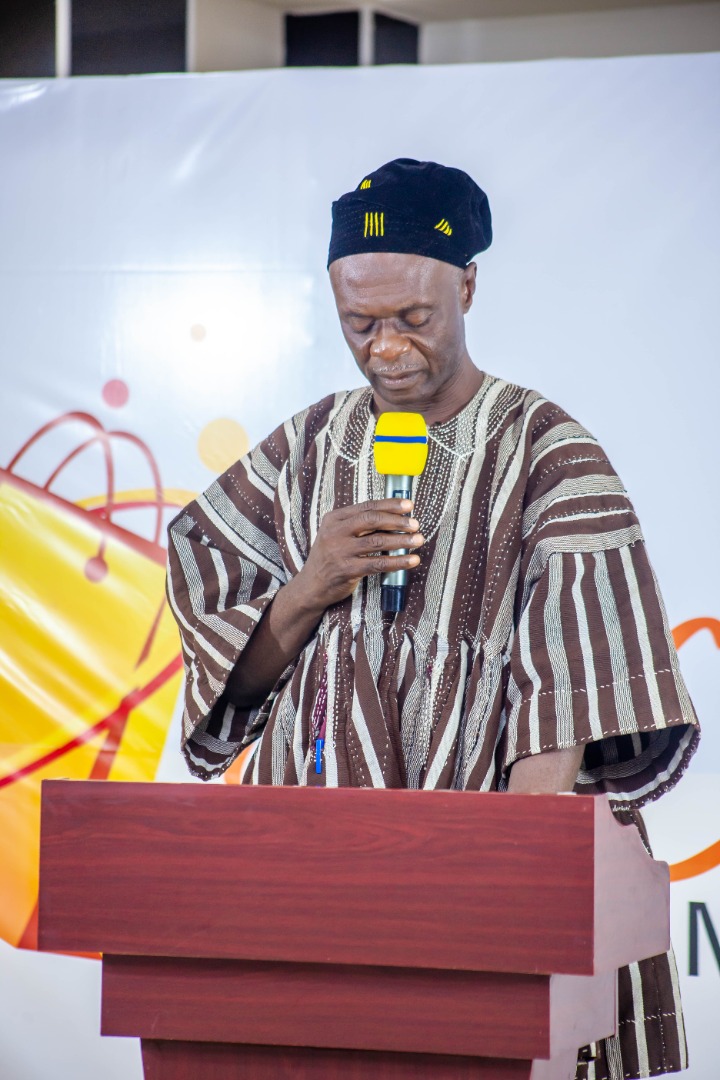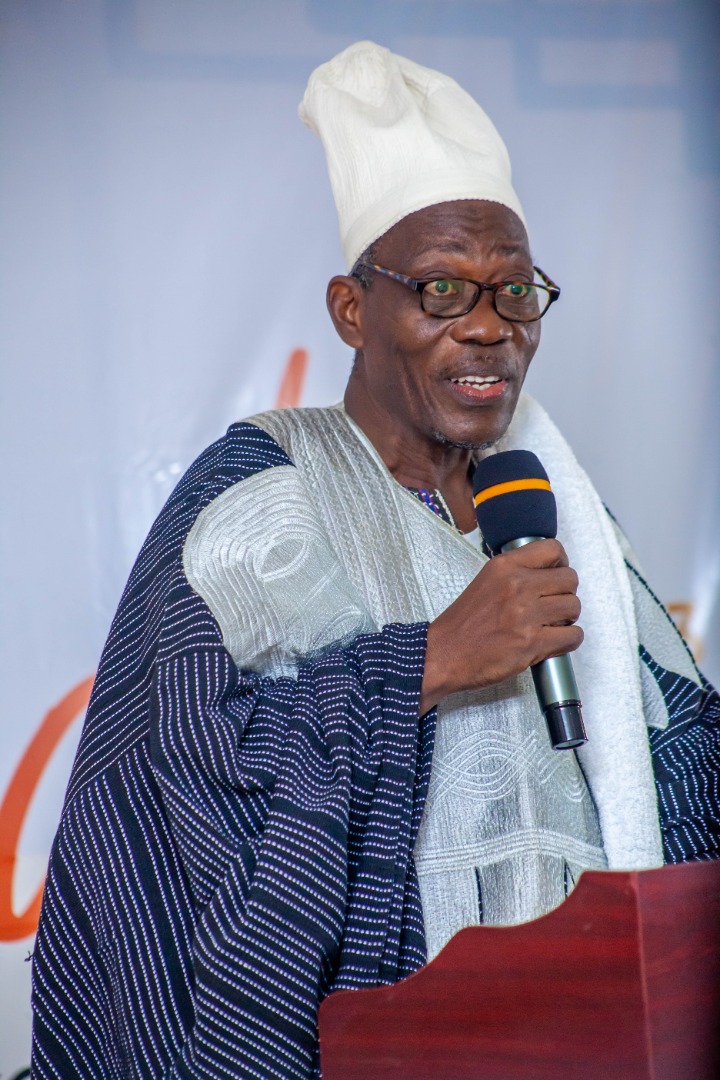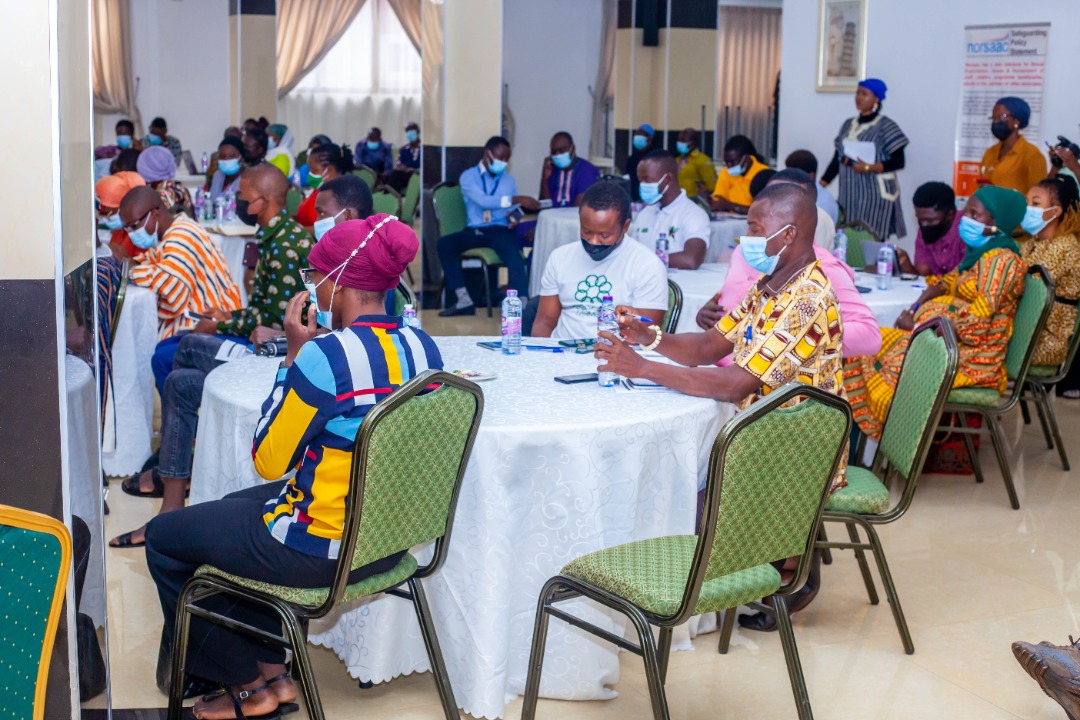Africa Skills Hub in partnership with Norsaac Ghana, Social Enterprise Ghana, and Northern Development Authority has organized a Social Enterprise Forum themed “unlocking the potential for wealth creation in women through social enterprising.”
The event, held at Mariam Hotel in Tamale on August 31, 2021, had key stakeholders who met to discuss an action plan to leverage the social entrepreneurship ecosystem of Ghana’s Northern Region.
In attendance were stakeholders from the Africa Skills Hub (ASH), Norsaac Ghana, Northern Development Authority, and Social Enterprise Ghana, who discussed and shared knowledge and expertise, and other key players’ exclusive approach to address the theme with support from Global Affairs Canada funding.
The Food and Beverage Industry was identified by ASH as one of the largest sectors for wealth creation for women in Tamale who venture into entrepreneurship as a means to improve their economic livelihoods and provide for their families.
The conference, therefore, served as the culmination of a year-long pilot which looked at addressing sexual violence using new and innovative methods such as an incubator for scaling up northern food innovations, a campaign focused on influencing men to participate in lessening the burden of domestic work on their wives, publication of a policy guide to address issues of gender mainstreaming across Ghana’s entrepreneurial policies and digital as well as a physical marketplace where these female entrepreneurs’ products will be sold.
Speaking at the forum, the Keynote Speaker, Shani Alhassan Saibu, Northern Regional Minister noted that the government associates with the forum and theme since investing in building an entrepreneurial culture in the country are critical for national development.
“Building businesses that tackle social problems is a step in the right direction and would be one of the lasting panaceas to most of the issues facing us as a people. I am of this view because such business models tend to be comparatively sustainable in the very long term,” he said.

Anatu Ben-Lawal the gender director at Africa Skills Hub elaborated on why they as an organization are choosing to take a new approach towards tackling sexual and gender-based violence by elevating the socio-economic status of the northern woman.
“We are living in uncertain times,” she addressed the audience adding that “the COVID-19 pandemic has changed the world of work and the shift in donor funding which has been long overdue has come to an end. It is time that we as Africans rise and begin developing innovative products and models that are self-sustaining and income-generating -the story of the northern woman since I was born over forty years ago has remained the same and we as an organization are bent on changing that. ”
“Wealth creation is the only sustainable approach that will reduce the vulnerability of women to the various elements that constitute sexual violence as we know it. Unfortunately, it calls for moving from donor dependency to business-like approaches which do not always resonate well with people, but it is not like we are left with a choice.”

The panellists shared varied views on how to improve the business environment for young entrepreneurs; especially women, and discussed the untapped areas of social value creation for the youth in the Northern Region. The panel included representatives from Africa Skills Hub, WEE North, SWIDA, HOPin Academy, Northern Development Authority, Ghana Enterprises Agency, and SEND Ghana.
In attendance were Executive Directors of Africa Skills Hub and Norsaac Ghana, stakeholders from Government Institutions & Departments, International Non-Governmental Organizations, Local Non-Governmental Organizations, the Media, and Traditional authorities around Tamale.
Africa Skills Hub´s groundbreaking research on the impact of COVID-19 on Gender Equality, Women’s Empowerment, and the Rise of New Opportunities through Business and Innovation will be out in October 2021.

About Africa Skills Hub
Africa Skills Hub is a youth INGO based in Accra, Ghana, and working throughout the African continent to build skilled Africa youth as agents of change using the social enterprise paradigm, which involves the application of disruptive approaches to community and grassroots development.
Source: citifmonline.com


Comments